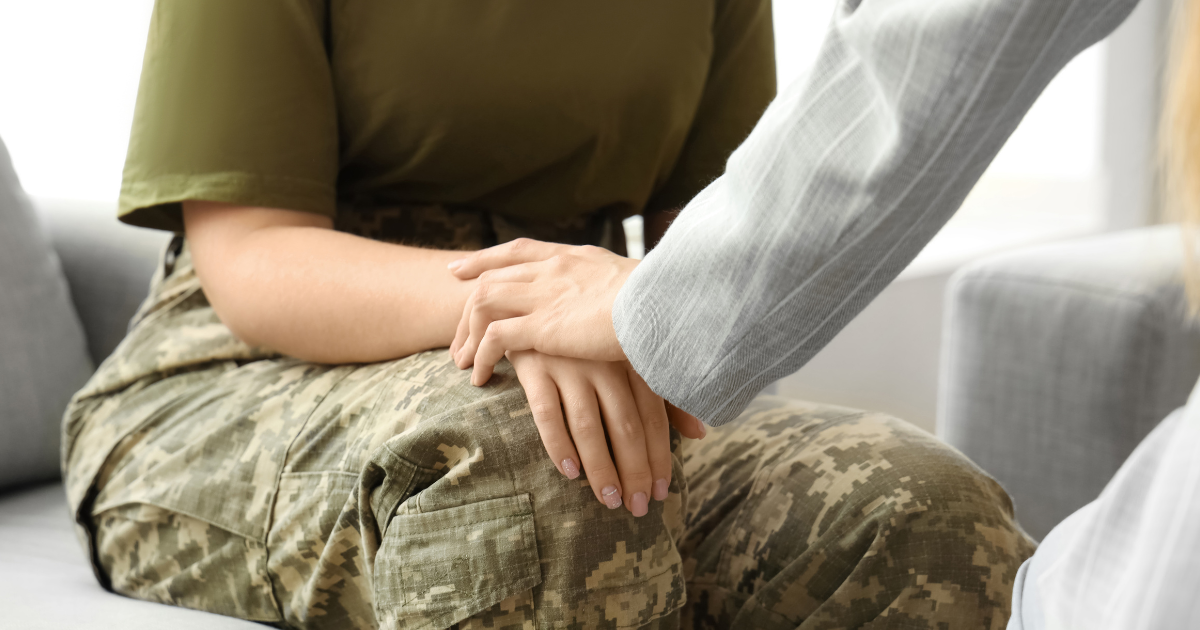Honoring Our Veterans: PTSD Awareness Day 2024
On June 27, we observe PTSD Awareness Day, dedicated to understanding and supporting those affected by Post-Traumatic Stress Disorder (PTSD), particularly our veterans. At Troop Industrial, we recognize the sacrifices of our service members and the importance of addressing PTSD among those who have served in combat.
Understanding PTSD
PTSD is a complex mental health disorder triggered by experiencing or witnessing traumatic events, often seen in combat situations. Symptoms include hypervigilance, mood swings, flashbacks, and avoidance behaviors. Managing PTSD effectively involves a combination of professional help, supportive tools, and understanding from loved ones. This holistic approach helps individuals manage their symptoms and lead fulfilling lives.
At Troop Industrial, we understand the profound impact of PTSD on our veterans. Our founder, a U.S. Marine Corps Combat veteran, emphasizes the importance of recognizing and addressing this disorder. PTSD can arise from the harrowing experiences faced during combat, and it's our duty to support those who have served our nation.
“As a combat veteran, I’ve seen firsthand the toll that PTSD can take on our brave service members. It’s not just a condition; it’s an invisible wound that affects every aspect of life. At Troop Industrial, we are committed to supporting our veterans by raising awareness and providing resources to help them heal and thrive.” - Brian Swindel, Troop Industrial President and CEO
Veterans and PTSD: Understanding Causes, Signs, Symptoms, and Treatment
PTSD impacts 11-20% of Iraq and Afghanistan War veterans, approximately 12% of Gulf War veterans, and 15% of Vietnam veterans. In addition to combat-related PTSD, roughly 1 in 4 women and 1 in 100 men utilizing the VA report instances of sexual harassment or assault, which can also result in prolonged traumatic stress.
Causes of PTSD
PTSD can be triggered by various traumatic experiences, including:
- Combat Exposure: Veterans may experience life-threatening situations, witness the death or injury of comrades, or engage in intense combat.
- Accidents and Injuries: Serious accidents or injuries sustained during service can also be traumatic.
- Prolonged Stress: Extended periods of intense stress during deployment can contribute to the development of PTSD.
Symptoms of PTSD
- Reliving the Event: Triggers can cause painful memories to resurface, making veterans feel as if they're experiencing the trauma all over again, whether awake or asleep. These flashbacks can be vivid and distressing.
- Avoidance: Many veterans steer clear of situations that remind them of the traumatic event, such as crowded places or loud environments. This avoidance can lead to isolation and a decrease in social interactions.
- Persistent Negative Emotions: Overwhelming feelings like guilt, shame, or a lack of interest in activities they once enjoyed can dominate their emotional state. This can also include feelings of hopelessness and detachment from others.
- Hypervigilance or Hyperarousal: Constantly on high alert, veterans may struggle to sleep, startle easily, or act recklessly. They may also experience irritability, anger, and difficulty concentrating.
Coping with PTSD
- Lifestyle Changes: Engaging with other trauma survivors, exercising, eating healthy, volunteering, and spending time with loved ones can provide emotional relief and a sense of normalcy.
- Mindfulness: Practicing mindfulness through simple breathing exercises or focusing on sensory experiences can ease stress and promote relaxation. Techniques such as meditation and yoga can be particularly effective.
- Practicing Optimism: Reflecting daily on positive experiences can shift the focus away from stress and anxiety. Keeping a gratitude journal or setting small, achievable goals can help maintain a positive outlook.
- Peer Groups: Connecting with others who have similar experiences can offer comfort and support. Peer groups provide a safe space to share feelings and coping strategies.
- Emotional Support Animals: Many veterans find peace and solace with emotional support animals. These animals can provide companionship and reduce feelings of loneliness.
Treatment for PTSD
- Professional Help: Addressing emotional or chemical imbalances often requires professional assistance. The Department of Veterans Affairs offers a broad range of counseling, outreach, and referral services. Seeking help from a mental health professional is a critical step in managing PTSD.
- Therapies: Treatments such as Cognitive-Behavioral Therapy (CBT), Eye Movement Desensitization and Reprocessing (EMDR), and other therapies can be effective. These therapies help individuals process traumatic memories and develop coping strategies.
- Medication: Antidepressants may be prescribed to help manage symptoms of depression and anxiety. Medication can be an essential part of a comprehensive treatment plan.
How to Help a Loved One with PTSD
- Support and Patience: Be a listening ear without judgment and be patient with their recovery journey. Understanding and empathy are crucial in providing support.
- Encourage Professional Help: Support their efforts to seek professional help and provide resources when needed. Encourage them to attend therapy sessions and follow treatment plans.
- Create a Safe Space: Help them create a calm and secure environment to retreat to when needed. This safe space can be a physical location or a supportive, non-judgmental atmosphere.
Resources for Veterans with PTSD
Camp Hope
Camp Hope provides a sanctuary for military veterans wounded in the War on Terror, offering all-expenses-paid retreats where veterans can heal in nature.
Mission: To honor the fallen by helping the wounded.
Visit their website: Camp Hope
Wounded Warrior Project
Founded in 2003, the Wounded Warrior Project (WWP) provides a wide range of programs and services for veterans, including mental health support, career counseling, and long-term rehabilitative care.
Mission: To honor and empower wounded warriors.
Visit their website: Wounded Warrior Project
National Center for PTSD
The National Center for PTSD is the leading research and educational center of excellence on PTSD, focused on advancing clinical care and social welfare for veterans.
Mission: To improve the well-being, status, and understanding of veterans suffering from PTSD through research, education, and training.
Visit their website: National Center for PTSD
PTSD Foundation of America
The PTSD Foundation of America aims to bring hope and healing to veterans and their families suffering from combat-related PTSD.
Mission: To reduce the veteran suicide rate through programming and outreach services.
Visit their website: PTSD Foundation of America
Military OneSource
Military OneSource provides 24/7 support and information to military families, including confidential non-medical counseling and a wide range of consultations.
Mission: To enhance the quality of life for service members and their families by providing comprehensive support and resources.
Visit their website: Military OneSource
PTSD Awareness Day is an opportunity for all of us to come together, honor our veterans, and support those affected by PTSD. By raising awareness and providing resources, we can help individuals manage their symptoms and lead healthier, more fulfilling lives. Join us at Troop Industrial in making a difference this June 27.






